In the series of recent posts I’ve made about the Milky Way, I missed an important reply made in the comments by Francois Hammer, one of the eminent scientists doing the work. I was on to writing the next post when he wrote it, and simply didn’t see it until yesterday. Dr. Hammer has some important things to say that are both illustrative of the specific topic and also of how science should work.
Rogue Scholar Posts
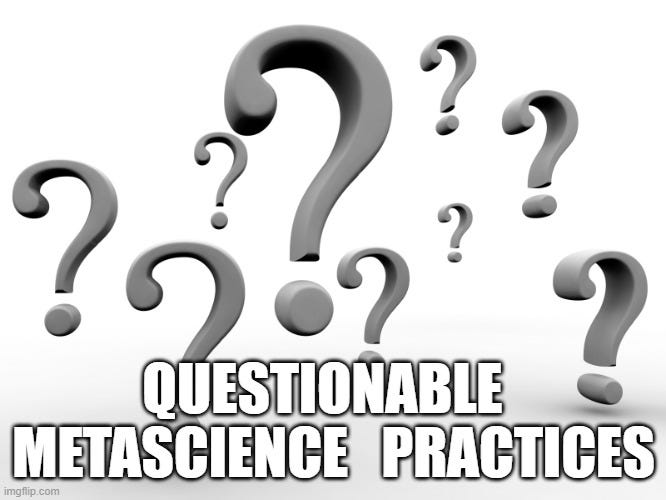
In this new article, I consider questionable research practices in the field of metascience. A questionable metascience practice (QMP) is a research practice, assumption, or perspective that’s been questioned by several commentators as being potentially problematic for metascience and/or the science reform movement. I discuss 10 QMPs that relate to criticism, replication, bias, generalization, and the characterization of science.
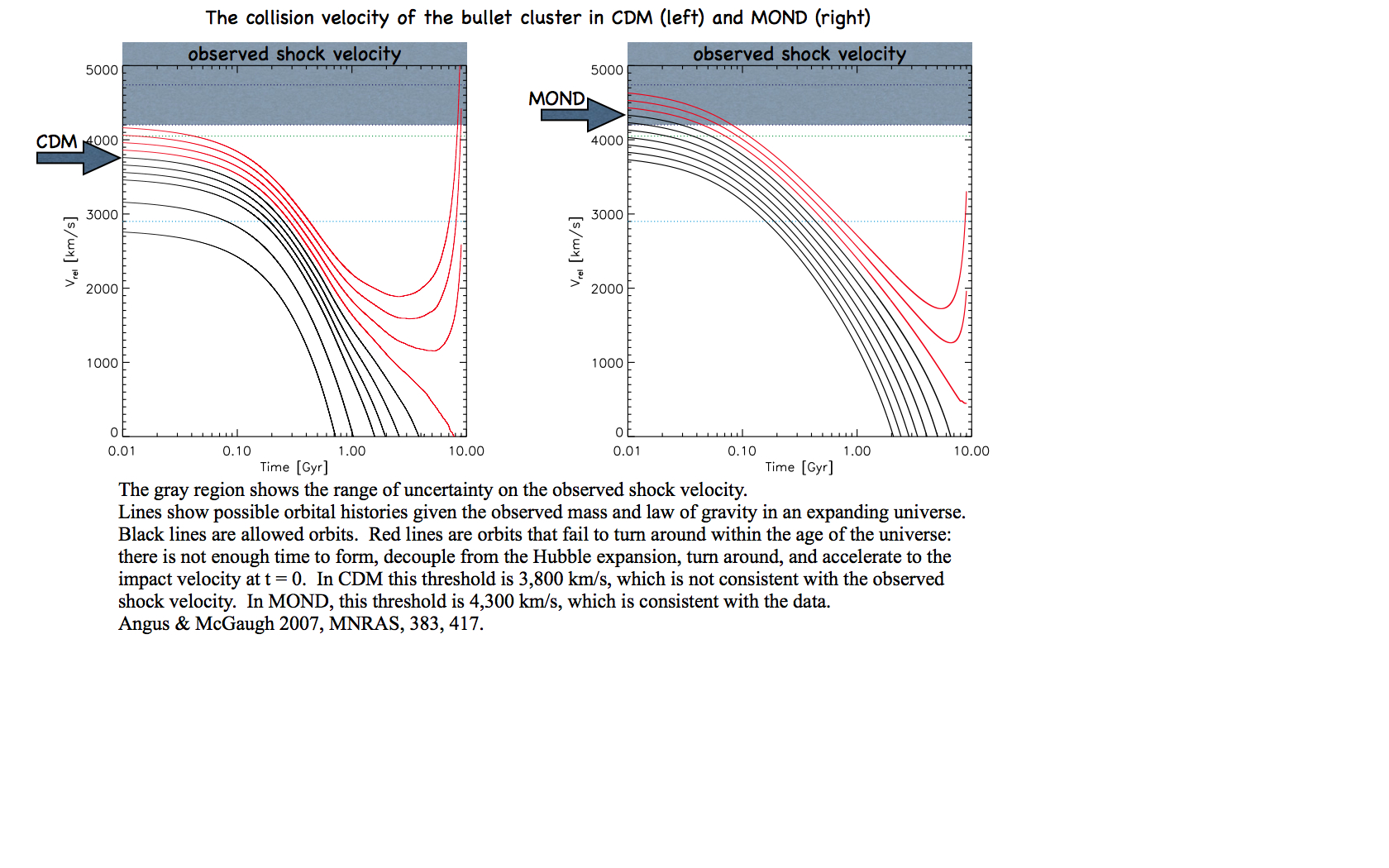
Why does MOND get any predictions right? That’s the question of the year, and perhaps of the century. I’ve been asking it since before this century began, and I have yet to hear a satisfactory answer.

I would like to write something positive to close out the year. Apparently, it is not in my nature, as I am finding it difficult to do so. I try not to say anything if I can’t say anything nice, and as a consequence I have said little here for weeks at a time. Still, there are good things that happened this year. JWST launched a year ago. The predictions I made for it at that time have since been realized.

We are visual animals. What we see informs our perception of the world, so it often helps to make a sketch to help conceptualize difficult material. When first confronted with MOND phenomenology in galaxies that I had been sure were dark matter dominated, I made a sketch to help organize my thoughts.
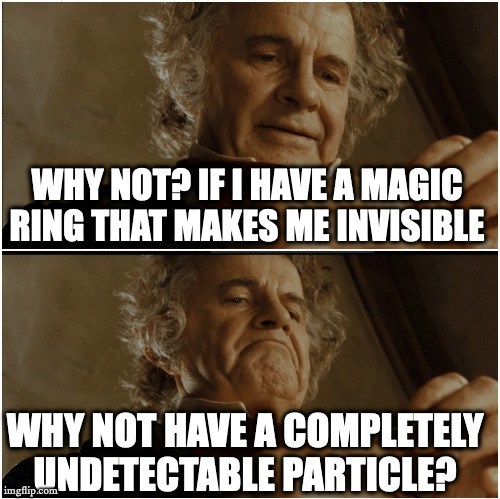
The dominant paradigm for dark matter has long been the weakly interacting massive particle (WIMP). WIMPs are hypothetical particles motivated by supersymmetry. This is well-posed scientific hypothesis insofar as it makes a testable prediction: the cold dark matter thought to dominate the cosmic mass budget should be composed of a particle with a mass in the neighborhood of 100 GeV that interacts via the weak nuclear force – hence the name.

I’ve reached the point in the semester teaching cosmology where we I’ve gone through the details of what we call the three empirical pillars of the hot big bang: Hubble Expansion Primordial [Big Bang] Nucleosynthesis (BBN) Relic Radiation (aka the Cosmic Microwave Background;
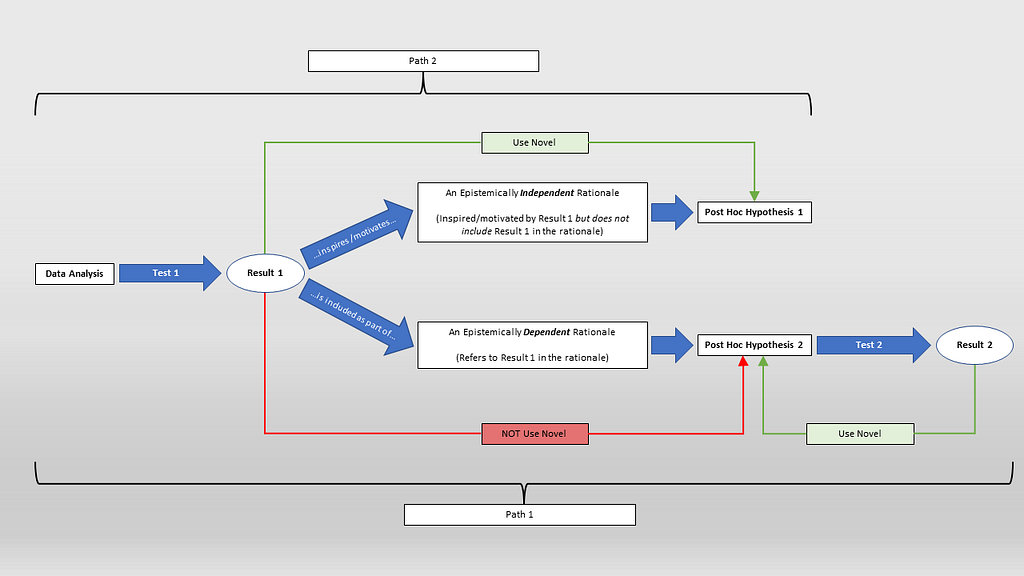
Researchers often distinguish between: (1) Exploratory hypothesis tests — unplanned tests of post hoc hypotheses that may be based on the current results, and (2) Confirmatory hypothesis tests — planned tests of a priori hypotheses that are independent from the current results This distinction is supposed to be useful because exploratory results are assumed to be more “tentative” and “open to bias” than confirmatory results.
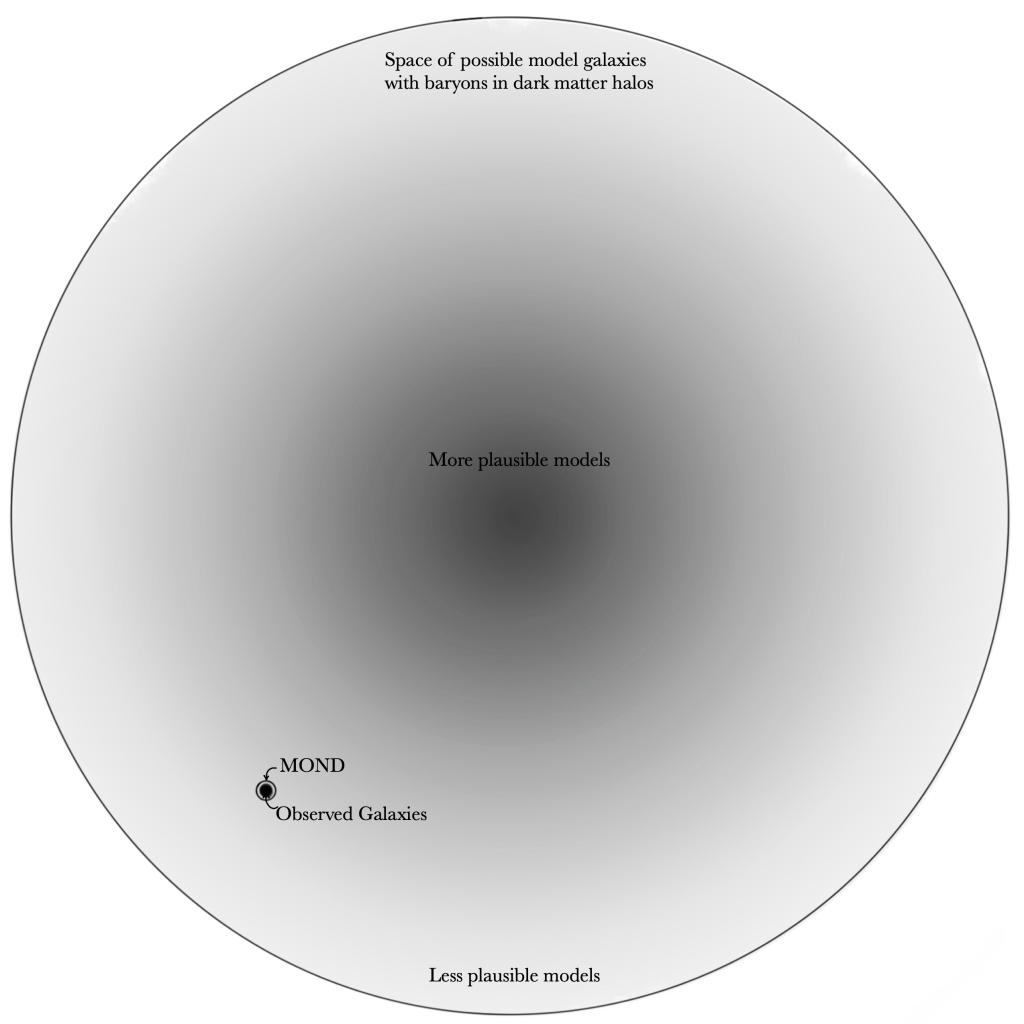
Dark matter remains undetected in the laboratory. This has been true for forever, so I don’t know what drives the timing of the recent spate of articles encouraging us to keep the faith, that dark matter is still a better idea than anything else. This depends on how we define “better.” There is a long-standing debate in the philosophy of science about the relative merits of accommodation and prediction.

Avi Loeb has a nice recent post Recalculating Academia , in which he discusses some of the issues confronting modern academia. One of the reasons I haven’t written here for a couple of months is despondency over the same problems. If you’re here reading this, you’ll likely be interested in what he has to say. I am not eager to write at length today, but I do want to amplify some of the examples he gives with my own experience.